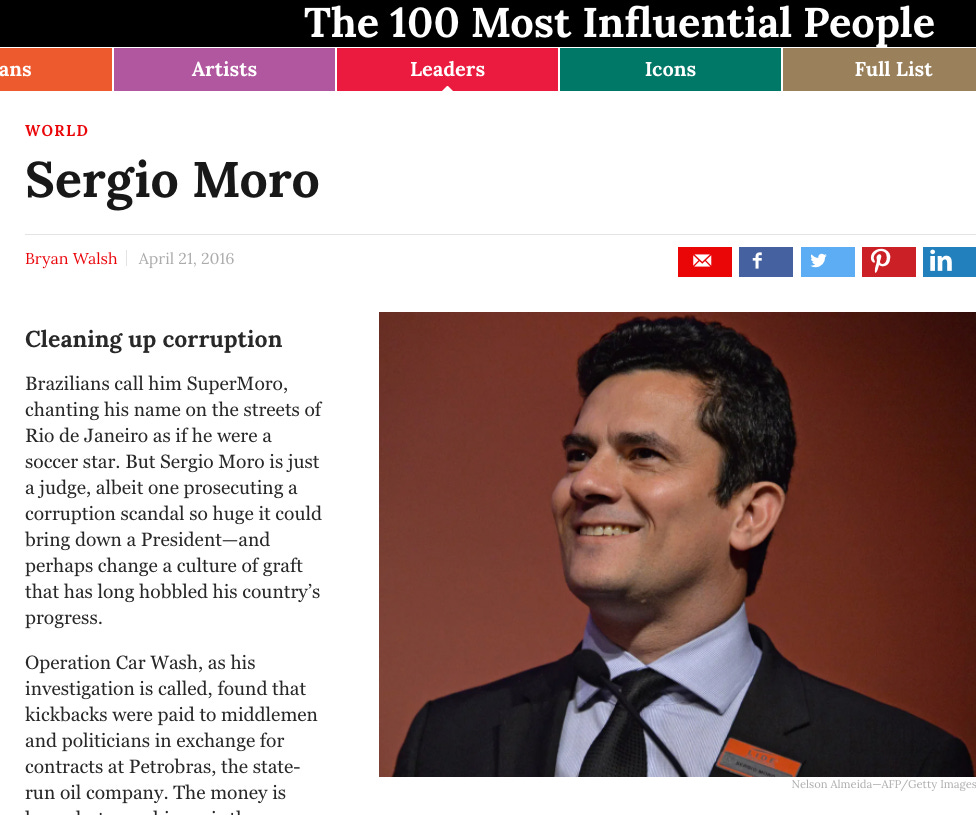
by Glenn Greenwald at Glenn Greenwald Substack
The resounding victory of the seven-term right-wing Congressman Jair Bolsonaro in Brazil’s 2018 presidential elections was stunning by every metric.
Consigned for decades to the political fringes due to his explicit praise for the military dictatorship that savagely ruled Brazil until 1985 along with other outlandish statements (“I would be incapable of loving a gay son. I prefer that he die in an accident”), the former Army Captain’s ascension to the presidency of the world’s sixth-most populous country was highly consequential for the region and the world. That he won by a large margin in a country that had previously voted for the center-left Workers’ Party (PT) in four consecutive national elections dating back to 2002, and whose media and political establishment were undisguised in their revulsion toward him, made his victory, whatever else one might say about him, politically impressive.
But that victory has always borne an enormous asterisk: the judicial elimination of his most formidable opponent. Polls throughout 2017 and into 2018 uniformly showed former two-term president Lula da Silva, founder of the Workers’ Party, as the clear frontrunner. That should not be surprising: Brazil experienced massive economic growth under Lula’s two terms, eventually passing the UK to become the world’s sixth largest economy (it is now back to twelfth); millions were lifted out of poverty; and Lula was term-limited out of office with an 86% approval rating. “That’s my man right there. The most popular politician on Earth,” proclaimed then-President Barack Obama when he met Lula in 2010 at the G-20 summit, Lula’s final year in office.
As Americans know better than anyone, none of this proves Lula would have defeated Bolsonaro had he been permitted to run. As the world saw in 2016, when Hillary Clinton was the overwhelming frontrunner, polling data can be wrong. And just as was true of Donald Trump in 2016, one could make the case that 2018 in Brazil was the perfect storm for a Jair Bolsonaro victory no matter his opposition.
Still, we will never know whether Lula would have prevented Bolsonaro’s victory. That is because a low-level judge in the mid-sized city of Curitiba named Sergio Moro declared Lula, in early 2018, to be guilty of various corruption felonies, based on procedures, charges and evidence so dubious that even Lula’s long-time critics were skeptical. But the guilty verdict was issued so quickly that it enabled an appellate court notorious for rubber-stamping Moro’s rulings to affirm the conviction, and thus declare Lula ineligible to run in 2018 by virtue of his losing his political rights. With Lula out of the way, Bolsonaro crushed PT’s replacement, the highly competent but little-known former one-term São Paulo Mayor, Fernando Haddad, by seventeen points in the first round and then ten points in the run-off.
For years, Judge Moro and the team of young prosecutors who oversaw the sprawling anti-corruption probe called “Operation Car Wash” (Lava Jato) were regarded as national heroes, as they brought charges and sentenced to long prison terms some of the nation’s most powerful oligarchs and politicians. As their popularity grew, they increasingly resorted to radical and lawless tactics against their targets, including ordering people imprisoned for months or years with no trial until they accused others of criminality, often falsely. But Moro’s status as a national hero and international icon — he was named to the TIME 100 list in 2016 — meant that no institutions, including superior courts, were willing to challenge him even when he transgressed clear legal and ethical lines.
All of that began to change in November, 2018. One of Bolsonaro’s first acts…
Continue Reading
